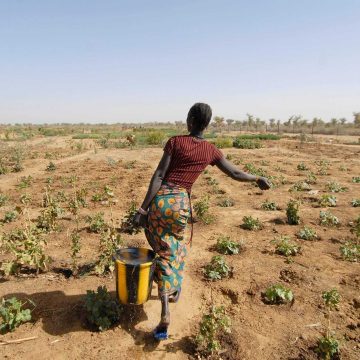Spatial planning and design with soils
Climate change, demographic pressures, and resource overconsumption impact the soil-sediment-water system, undermining ecosystem stability and human wellbeing. With 60-70% of Europe’s soils are classified as unhealthy, urgent intervention is needed for societal and ecological resilience. The EU Mission ‘A Soil Deal for Europe’ is committed to increasing soil health by 2030. The EU Soil Mission project SPADES contributes to this goal.

Spatial planning and design are important instruments that guide the spatial development in European regions. Often soils are not considered as main element of planning and design, and as such many opportunities are missed to plan, design and create safe, attractive and flourishing environments. By recognising soils as pivotal for spatial development we contribute to resilient future-proof planning and soil-sediment-water systems. SPADES combines 19 partners in 10 countries, and 17 pilots in urban, peri-urban and rural areas.

The Mission’s research program includes the Horizon Europe project SPADES, which celebrated its inaugural meeting in October at Deltares (project coordinator) and TU Delft in Delft, Netherlands.
Deltares and TU Delft have been working together on the topic of integrating soils in spatial planning for over 15 years. SPADES links leading research institutes, regional planning authorities, and urban development agencies collaborating to embed soil health into spatial planning processes.
A comprehensive vision for soil health in planning and design
Over the next four years, SPADES will develop a unified approach to integrating soil health across all areas of land management. Working with 17 pilot projects in ten European countries, SPADES will investigate the potential for integrating soil health into spatial planning and design in urban, peri-urban, and rural areas.
Pilots will address soil degradation challenges and threats such as soil sealing, pollution, land take, and erosion, testing strategies to promote healthier and more resilient soils within each unique context.
This work could play a key role in supporting member states in restoring land ecosystems by at least 20%, as per the EU’s Nature Restoration Law, and in achieving the soil health targets outlined by the proposed Soil Monitoring Law.
Pilots

Comprehensive long-term strategies
- Long-term strategy Groene Hart (Green Heart) (NL)
- Long-term strategy Ooststellingwerf (NL)
- Long-term strategy Klagenfurt region (AT)
- Long-term strategy Grenoble metropole (FR)
- long-term strategy Hajdu-Bihar County (HU)
Urban and peri-urban soil challenges
- Soil-inclusive planning in Gothenburg (SE)
- Water sensitive planning in Leipzig (DE)
- Structure plan for Nantes Metropole (FR)
- Green wedges for Ljubljana (SI)
- Former mining site in Bara Mare (RO)
Rural and peri-urban soil challenges
- Landscape development in Flemish Ardennes (BE)
- River valley restoration in Flanders (BE)
- Peatland restoration in Northern Germany (DE)
- Public land in Montpellier Metropole (FR)
- Farmland abandonment in France (FR)
- HighwayA35/Parco Regionale Adda Nord in Lombardy (IT)
- Grazing common land in Transylvania (RO)
Groundbreaking tools and approaches
SPADES does not just have lofty goals, it has actionable plans for achieving them. A key example here is the proposed "SPADES Navigator," an innovative web tool that will guide spatial planners and policymakers in the integration of soil considerations into spatial planning.
The Navigator will cater to diverse user needs by offering accessible information, such as maps and effectivity of Nature-based solutions, adaptable tools that support soils in planning and design, and support to ensure soil considerations become integral to land use strategies. The Navigator will be accompanied by a user manual, a capacity building program for planners and authorities, and targeted policy briefs.
The project is also pioneering methods to elevate soil literacy. Through a mix of training programs (e.g. UrbanByNature), communication resources, and publications, SPADES aims to improve soil knowledge among European spatial planners and policymakers. Soil literacy is essential if we are to build a foundation for long-term and effective soil management.
We're already well aware of the importance of soil and water health, together with our partners at the Soil Knowledge Centre in Oosterwolde. But integrated soil policy is still uncharted territory for us. By using the instruments of the Environment Act, SPADES can help develop policy that not only protects the soil, but can also strengthen it as a foundation for a sustainable and future-proof living environment.
Michel Hania, Sustainability and Rural Areas Advisor, Municipality of Ooststellingwerf
Looking ahead
As SPADES embarks on its journey, the project team is dedicated to translating its ambitious goals into actionable strategies for Europe’s spatial planners and policymakers. Over the next four years, SPADES will focus on refining its tools, fostering knowledge exchange, and starting up the pilots to showcase successful soil-health integration. Stay tuned to learn more about how SPADES will help make soil health a core component of spatial planning across Europe.





